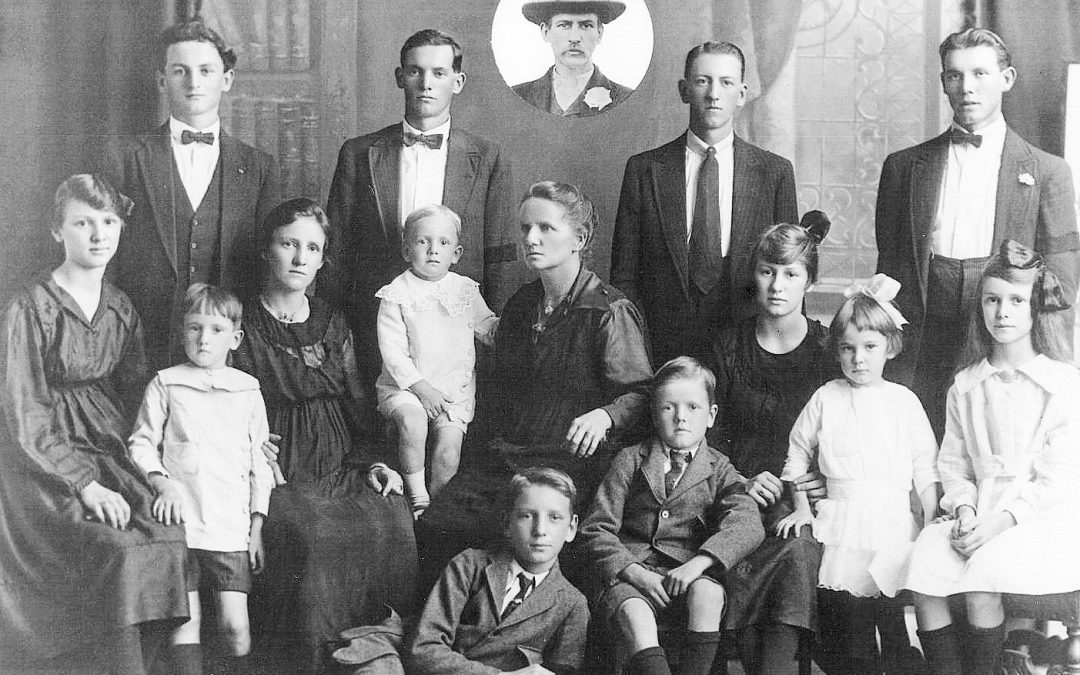Dudley Nunn was the 15th and second longest-lived member of one of Ipswich’s many coal-mining families.
His father Sid was one of the first generation of the Dinmore Nunn family that started in 1858 when David and Rachel Nunn arrived from Suffolk, England and settled on land near the Bremer River.
[In the above image, Dudley is seated near his mother in an image of the whole family taken after his father Sid (inset) passed away.]
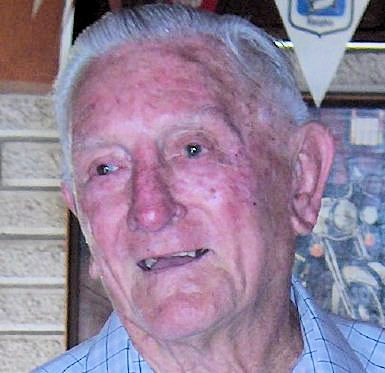
Dudley Mervyn Nunn on his 90th birthday in 2006.
It was on a farm at Moggill in 1931 that 15-year-old Dudley Nunn got a taste of hard work that would fit him for the tough physical life that was to follow.
The youngest of 15 children born (13 survived to adulthood) to coal miner Sid Nunn and Rose Hawkins, Dudley was a two-year-old when his father died in 1919 aged just 46.
Sid was the victim a lung condition that still afflicts miners.
In the years that followed, Rose raised her family alone in their Dinmore home at a time when pensions were non-existent.
Dudley’s life was punctuated by frequent forays to the nearby Bremer River where he and his siblings caught bream and crabs to bolster their sometimes meagre diet.
When came the time to get work, Dudley headed off across the Brisbane River to a farm run by the Sexton family where he was paid seven shillings and sixpence weekly, including board.
The farm was near Sugars’ quarry which presumably is in the area of Sugars Road, Anstead, off Mount Crosby Rd.
Six months of early starts milking cows, sorting and washing eggs and chopping wood, honed his young body before Dudley moved back to Dinmore and worked on another dairy. It was run by the Lenehans.
So many cows to milk
After milking 60-odd cows, Dudley would then have to deliver milk on a horse and cart.
He explained the daily routine: “I used to get off the cart at the bottom of the hill there at Dinmore, take two buckets of milk and walk up through the bush to the poultry, delivering milk there. Then I’d walk out and we’d go and do around the Chum.
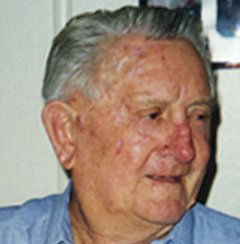
Dudley Nunn.
“Then we’d come home for breakfast and Mrs Lenehan would have a big dish of boiled eggs for us . . . every morning for three months.
“We had to take the cows down to the rifle range at Greenbank and then bring them back in the afternoon and milk them again . . . all for 15 bob a week.”
While at Lenehans, Dudley bought a horse from his uncle Jimmy Nielson who was married to his father’s sister, May.
He paid 30 shillings for the mare and proudly showed it off to his mates and then rode it back to his mum’s place where he left it in the front yard to eat the grass.
The electricity supply to the house was linked by wires to a smaller post in the yard which was secured by stay wires. Unfortunately, when Dudley’s brother Bert went to move the horse it ran into the stay wires which brought down the live wires and was electrocuted.
“I only owned the horse for about eight hours. That was the end of me horse … never had one since.”
After that, Dudley worked at Britain’s brickyard at Darra as a labourer on the brick-making machine. He had to work non-stop packing bricks into wheelbarrows as they rolled out of the machine.
Teenager miner
Just short of his 16th birthday, Dudley started at New Chum mine helping the miners push wagons.
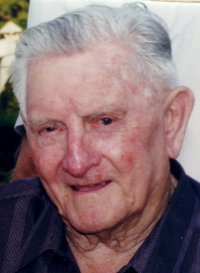
Dudley Nunn.
“It was up a steep hill in the mine . . . it was too much for one man.”
Later, while driving horses to pull the wagons, Dudley had the top of a finger badly torn when caught in a rope. It needed eight stitches but he had to find his own way to hospital.
“They wouldn’t ring the ambulance. Old Geordie Mathieson says ‘you’d better go and catch the train’.”
After more than a decade at New Chum, Dudley moved on to the Ideal mine near Box Flat.
“We worked on a tribute system. All the coal we got was split up and that’s how we got paid.”
Dudley also was involved in some prospecting at Yarraman where several farmers put in money in the hope of finding a seam.
“We found a seam and then they abandoned it because they found out it was too expensive to cart the coal.
“There was no train line to Yarraman . . . only from Maryborough. It was too costly, so they abandoned it. I even left me tools in there. That was in about 1947.”
Box Flat accident
Dudley also worked at Box Flat mine where he was hit in the side of the head by the force of an explosion when a fellow miner did not follow safety protocol. Fortunately, he escaped serious injury.
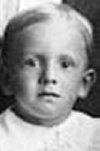
Dudley Nunn aged about 2.
“You know that mongrel that done it – he was one of the Williams’s – he never come to see me, he never asked me at the pit how I was or anything. Not a thing was done about it.”
Working conditions in the mine were varied but never more difficult when miners encountered rock.
Dudley describes working in a two-foot space, “It was all rock and you had to throw all the stone up in front and you had to shovel that out and wheel it away and dump it so that they could get the rails in.”
“So I said there’s plenty of better seams that this around Ipswich, I’m sure I can get a job. I got one.”
In 1939, Dudley married Eileen Malcomson and they had three children; Geoffrey, Janet and Peter.
For more than 50 years they lived at Walkers Lane, Booval, just a short walk from the racecourse where until late in 2002, Dudley worked on race days looking after the jockeys’ rooms.
Eileen predeceased Dudley in 2003.
FOOTNOTE: I first met Dudley in the early 1990s. He and Eileen were the kindest people and treated me as if I were one of the family. I have wonderful memories of my visits to Walkers Lane.
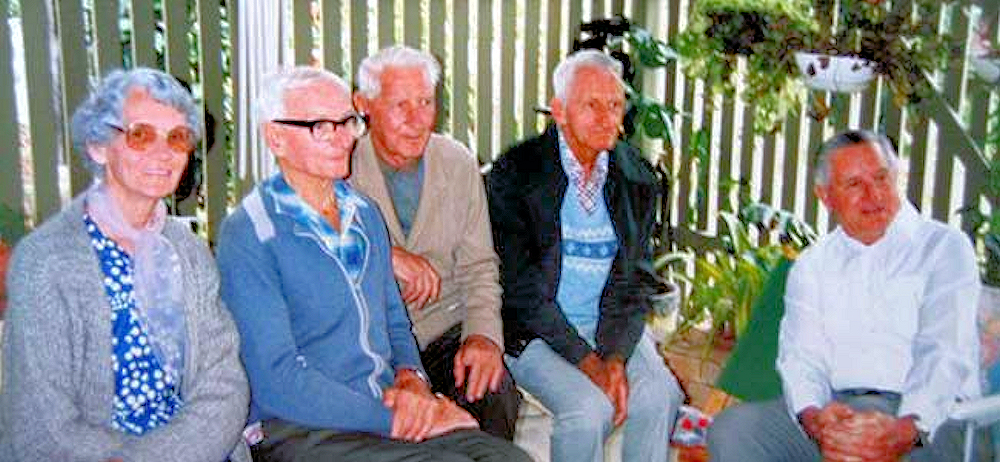
Dudley Nunn at right with siblings (from left) Alma, Eric, Frank and Bert.

